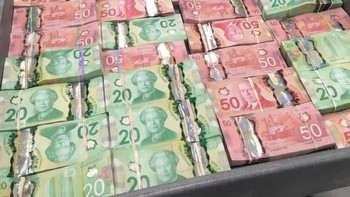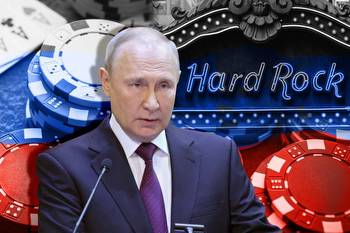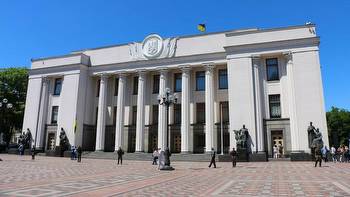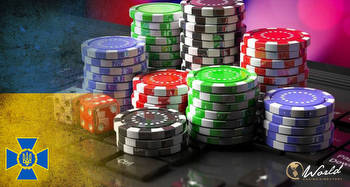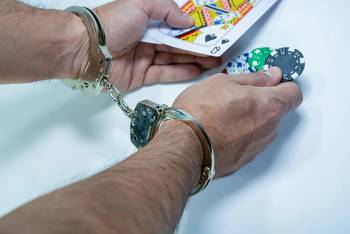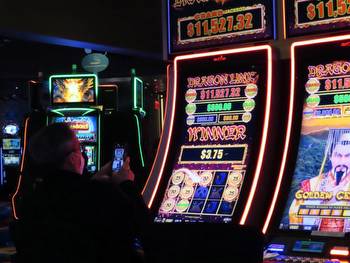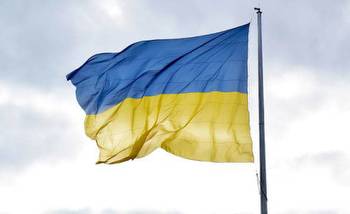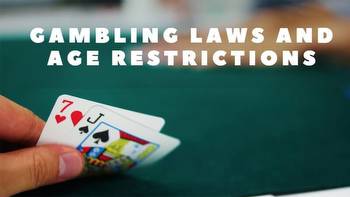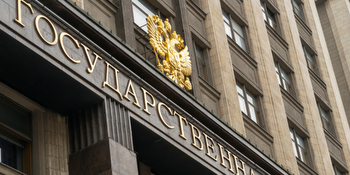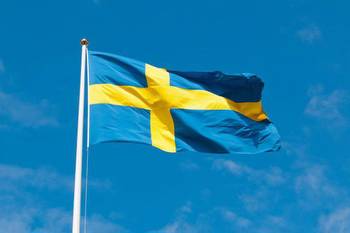How banks and payment systems enabled illegal gambling
The Bell published an investigation in Russian last week detailing how part of Russia’s financial system profits from the transfer abroad of earnings from illegal online casinos and bookmakers. Below we have a summary of the findings in English.
How Russia cracked down on gambling
There’s an old saying: ‘What kind of Russian doesn’t like driving fast?’ and, for many Russians, risk appetites are high. The annual value of the Russian gambling market is estimated at 1.25 trillion rubles ($17.1 billion), but much of it is shrouded in secrecy. For years, the authorities have battled the gambling industry without much obvious success.
Russia had more than 6,000 casinos in 2006. But then President Vladimir Putin decided to restrict gambling to four special zones (including the Western exclave of Kaliningrad and the remote Altai region in southern Siberia). Within six weeks, the relevant legislation was passed and gaming halls across the country shuttered.
This new reality forced everyone in the gambling business to move online. And a raft of auxiliary businesses appeared: developing software, driving traffic, aggregating content and devising ever more complex schemes to bypass the restrictions enforced by the Central Bank and avoid the attention of the intelligence services.
Banking sector complicity
Dozens of major financial market players helped create a network of ‘grey’ cross-border payment systems, according to multiple sources in the banking industry.
This included some of the country’s biggest state-owned banks, which acted as acquirers and provided so-called ‘miscoding’ (each bank transaction has its own code and payments from online casinos should be labelled with code 7995, but corrupt bank staff would swap this code for another, enabling the transaction to proceed safely).
For these schemes to function, each bank needed a manager who waved through high-risk operations under the guise of safe transactions, one of our sources explained. “This person could earn up to 0.1 percent of the turnover of these operations. All together, it amounted to a corrupt scheme on a nightmarish scale,” he said.
Then, smaller banks got involved — they took responsibility for checking the final recipient and earned hefty commission for covering their tracks. In particular, small banks made connections with specialist payment portals set up by companies that simplify international money transfers. As a result, the cash typically ended up in foreign banks (Latvia’s Rietumu Banka and LPB were most often used), and from there was moved to the casino’s offshore accounts.
Major fin-tech companies were also involved. About 60 percent of payments going through Russia’s most popular electronic wallets (local equivalents of PayPal) since the mid-2010s were payments to casinos, bookmakers and other gambling organizations, according to The Bell’s sources. At first, the payment companies themselves were often unaware of whom they were dealing with.
“These guys came to us as gaming services,” said a former manager of one of Russia’s biggest payment services. “But when we conducted an internal audit it became clear under the hood were only casinos and gambling. Then we understood what fin-tech is all about. All the payment companies earn profits from foreign exchange, betting and gambling.”
International help
The crucial link in the chain spiriting casino profits out of the country were companies specializing in international money transfers. There were at least a dozen of these on the market, according to The Bell’s sources. Some were created by bookmakers themselves – for example RoyalPay was developed by bookie 1xbet. Other systems, such as WinPay or Ukraine’s Pay-Trio, operated independently. Three separate sources named European firm Ecommpay as one of the biggest and most sophisticated players in the cross-border market of the late 2010s.
Ecommpay positions itself as an international payment system with an IT infrastructure for online payments. The company itself has said Russia is far from its only market. But more than 60 percent of the site’s traffic in the last 12 months came from Russia.
Ecommpay is registered in the United Kingdom, but it has dozens of affiliated legal entities, including one in Cyprus. Little is known about Ecommpany’s owner, 39-year-old Latvian Alexejs Sjarki, who also lives in Cyprus. “These are really smart guys. For years, the Central Bank has been unable to do anything about its schemes. While the regulator adopted one amendment, they came up with three or four alternatives,” said one Ecommpany client. “Ecommpay’s commission for its software used to be 0.7 percent, but the turnover cleared tens of billions of rubles every month,” said another source.
The state’s counter-blow
For a long time, the government could not find an answer to the ‘grey’ payment market and online casinos prospered despite the ban. When their websites were blocked, they deployed mirror sites and continued taking bets. But all that changed this year.
The Central Bank went on the attack on New Year’s eve. First, the regulator revoked the licenses of three small banks that had played active roles in transferring profits from online casinos and brokers. But the market did not really panic until the Central Bank banned some cross-border transactions linked to leading payment systems such as Qiwi and YooMoney (previously Yandex Money).
After that, the biggest banks rushed to distance themselves from ‘high risk’ operations, according to three separate sources in the payments market. The checks continue and, since April, the regulator has revoked the licenses of three more small banks.
The shake-up made it impossible for online casinos and illegal bookmakers to accept payments via cards or electronic wallets — and crypto-currency bitcoin was left as almost the only way to fund a bet. Some online casinos simply shut down.
The timing of this blow against the gambling industry coincided with a political decision that will reshape Russia’s legal gambling market. According to current legislation, bookmakers can operate legally if they have a Russian license. They have to work with special operators, pay taxes and donate part of their profits to Russian sports leagues.
But a group of politicians from the ruling United Russia party pushed through a law last year that overhauls the existing regulatory framework, specifying that bookies must give 1.5 percent of all bets to the state. A new regulator will also control payments.
Umar Kremlev, an official at the Russian Boxing Federation, took the credit for the legislation. Not much is known about him, but the Boxing Federation has some political heavyweights on its supervisory board including head of presidential security Alexei Rubezhnoi; Igor Sechin, the president of state-owned oil giant Rosneft; and Timur Prokopenko, deputy head of the Kremlin’s internal policy department.
Why the world should care: There is a myth that any dirty Russian cash that turns up in Western banks must have come from Putin or his inner circle. In reality, the billions flowing out of Russia could just as well be the proceeds from simple criminality.









